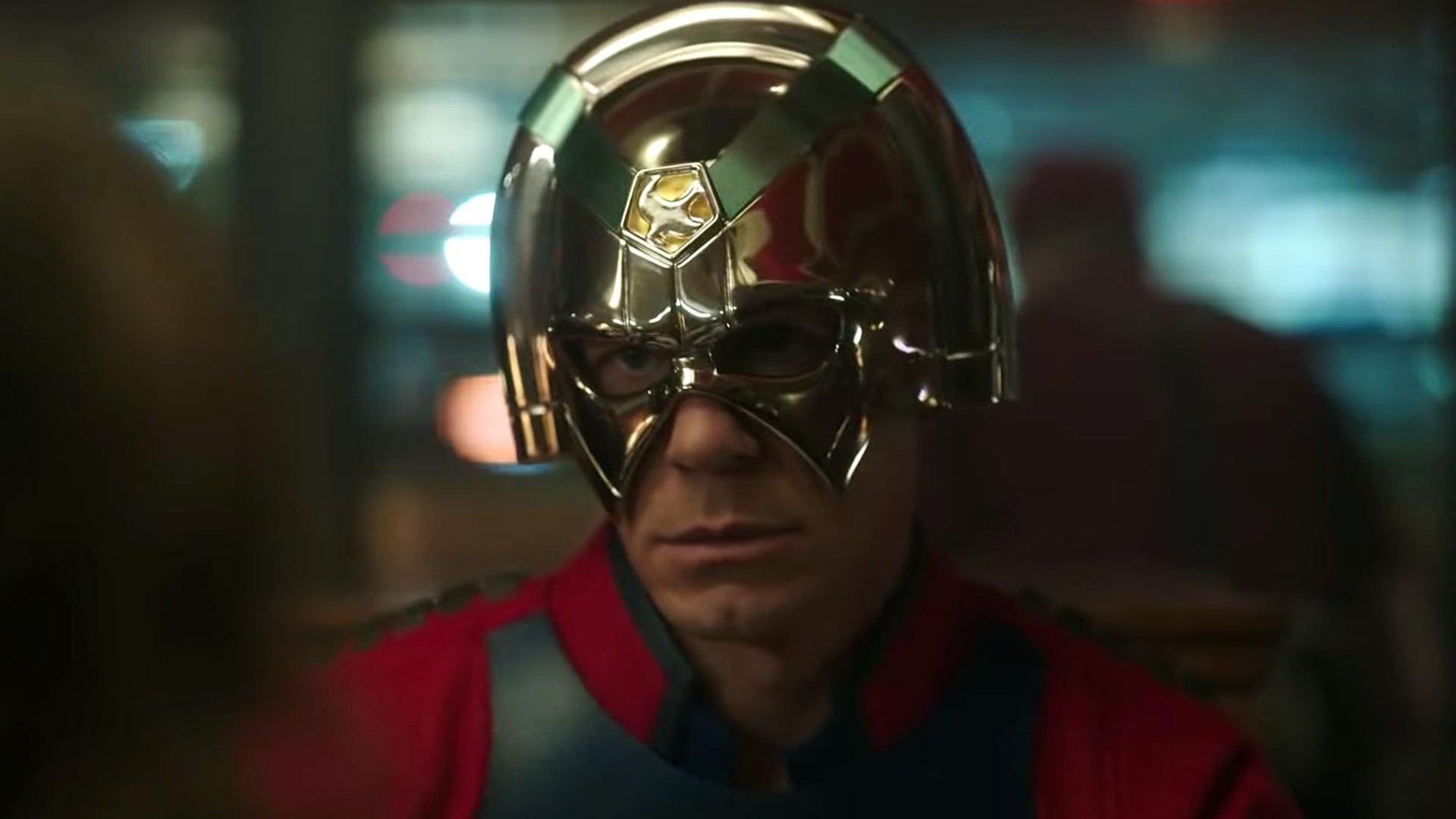The highly anticipated second season of Peacemaker, which premiered on HBO Max, offers a fresh perspective on the often-explored concept of the multiverse. Starring John Cena, the series dives into an alternate reality where the titular character’s life appears idyllic, contrasting sharply with his traumatic experiences in the primary DC universe.
In the opening episode of season two, Peacemaker encounters a version of the DC Universe where everything seems perfect. Here, he is not only a celebrated superhero, but also has the chance to reconnect with his father, Auggie, played by Robert Patrick, who he was forced to kill in the previous season. Additionally, his brother Keith, portrayed by David Denman, who died in their childhood, is alive and well. Together, they form a superhero team known as The Top Trio, and Peacemaker navigates his complex relationship with Emilia Harcourt, played by Jennifer Holland.
Exploring New Dimensions
This season’s exploration of the multiverse, although reminiscent of other franchise iterations, is framed by creator James Gunn as a deeper character study. In an interview with Rainn Wilson for Interview magazine, Gunn remarked, “There’s been a lot of talk about, ‘Oh, you’re doing the multiverse and that’s already been done.’ But it really isn’t the multiverse. It’s more like Philip Roth’s The Counterlife. It’s about one reflection of your world.”
Despite this assertion, the series does utilize a multiverse-like structure. The narrative device, the Quantum Unfolding Chamber, first introduced in season one, serves as a gateway to various dimensions. Gunn clarified that these are not merely alternate realities but represent different dimensions, adding layers to Peacemaker’s journey.
As seen in the five episodes provided to critics, this alternate universe reflects many elements of the main DC universe but with notable variations. The character’s happiness in this new setting raises questions about his past struggles, suggesting a thematic exploration of trauma and personal growth.
Contrasting Takes on the Multiverse
The portrayal of the multiverse in Peacemaker stands in stark contrast to recent uses of the concept in other series, particularly within the Marvel Cinematic Universe (MCU). For instance, Doctor Strange in the Multiverse of Madness presents a narrative that begins with emotional stakes but quickly devolves into an array of cameos and action sequences, diluting its emotional impact. Conversely, Spider-Man: No Way Home manages to balance nostalgia and character development more effectively, yet it still occasionally feels overwhelmed by its constant references to past franchises.
Gunn emphasizes the importance of character-driven storytelling, asserting that the emotional thread should take precedence over mere spectacle. He believes that the true strength of Peacemaker lies in its focus on the character of Christopher Smith, rather than solely on his superhero persona. “Peacemaker season 2 really is the Christopher Smith season,” Gunn stated, highlighting his intention to delve into the personal aspects of the character’s journey.
As audiences engage with this iteration of the multiverse, the question remains: Are viewers fatigued with the concept, or simply unenthused by its superficial applications? By centering on the emotional and psychological implications of alternate realities, Peacemaker may reinvigorate interest in the multiverse narrative.
With the release of new episodes, viewers can expect a blend of humor, action, and emotional depth, showcasing how different versions of oneself can lead to profound insights about identity and choices. As the season unfolds, fans will be eager to see how Peacemaker’s journey evolves in this intricate tapestry of realities while maintaining its roots in genuine character exploration.
